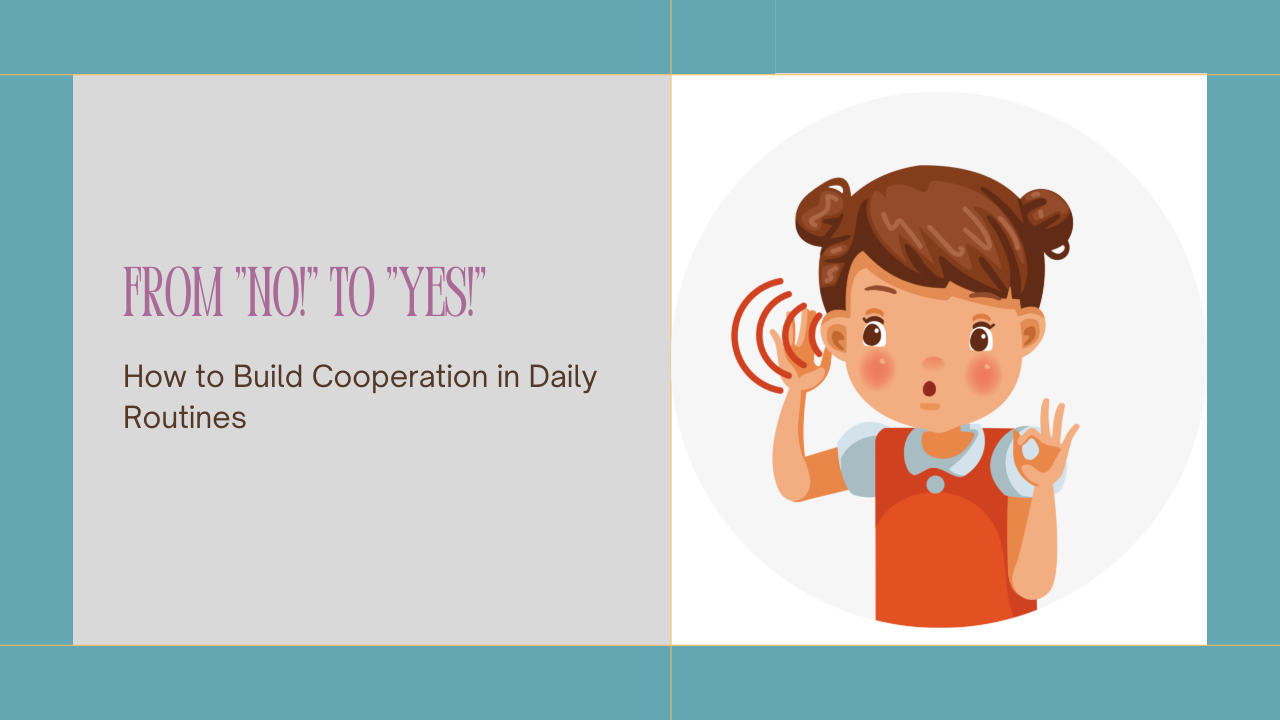From "No!" to "Yes!": How to Build Cooperation in Daily Routines Using ABA Strategies
Jun 18, 2025
Does your child seem to resist everything you ask them to do, no matter how small the request? From brushing teeth to putting on shoes, noncompliance can make even the simplest tasks feel like a battle. But here's the good news: with the right strategy, you can end those daily battles!
Let’s walk through an ABA-based strategy that’s easy to implement and incredibly effective: Give a simple direction, then offer immediate praise.
What to Do: Give Simple Directions + Immediate Praise
Start by giving clear, simple directions. Use one-step instructions your child can easily understand. Instead of saying, “Let’s clean up the whole living room,” say, “Put the toy in the bin.”
As soon as your child follows the direction, offer immediate praise—enthusiastic, specific, and genuine.
Try saying:
- “Great job putting your shoes on!”
- “Wow, that was so fast!”
- “That was awesome listening!”
If your child needs more support, you can also model the action or gently guide them to start, then reinforce every small step they complete.
When to Do It: During Daily Routines
Daily routines offer countless opportunities to practice this strategy. Think:
- Bedtime routine (getting dressed, brushing teeth)
- Mealtime (sitting at the table, using utensils)
- Clean-up time (putting toys away, wiping spills)
- Transitioning between activities
Start with tasks that are low-stress and high-success, then build from there. The more your child experiences success with following directions, the more likely they’ll cooperate over time. Morning routines also offer great opportunities, but these are often high-stress moments because you’re trying to get out the door on time, so avoid practicing this strategy in the morning on days when you have to rush out to school or work.
Why Do It: It Builds Cooperation + Confidence
Giving simple, manageable directions paired with immediate positive reinforcement helps reduce resistance to directions. Your child will quickly learn that when they listen and follow directions, good things happen (your attention is a major reinforcer for your child). Plus, it keeps you from repeating yourself over and over.
Remember that behavior change takes time, so some days your child will be more cooperative than others. But over time, this strategy will reduce the daily power struggles.
UNLOCK YOUR FREE TOOLKIT NOW: ENHANCE YOUR CHILD'S PLAY & LANGUAGE SKILLS TODAY!
Simply enter your email address to get instant access.

